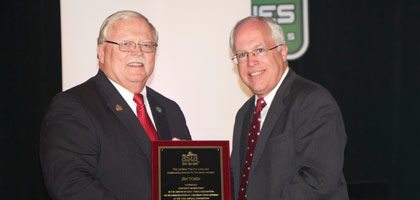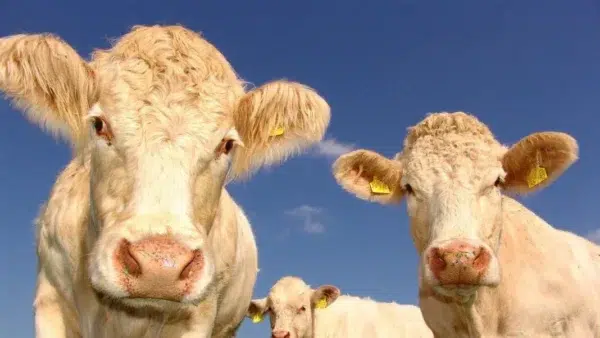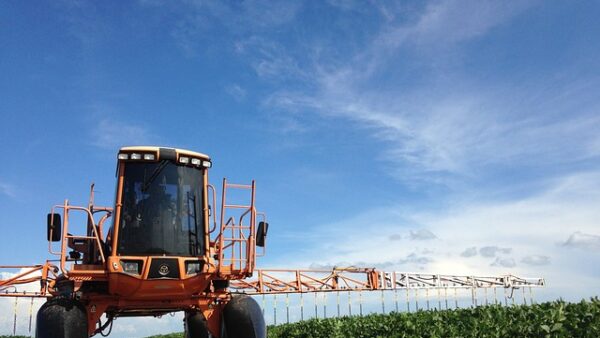The American Seed Trade Association covered a lot of ground during its 131st Annual Convention. Here are some of the highlights from Seed World’s coverage.
Designated as a time when seed companies from all sectors convene to discuss critical issues, develop policies and recognize industry leaders, the American Seed Trade Association’s 131st Annual Convention did not leave its more than 300 attendees disappointed.
On the front end of the meeting, ASTA joined forces with Purdue University’s Center for Commercial Agriculture to host the first-ever Seed Leadership Program, which had more than 80 participants from all sectors of the seed industry. The program brought together renowned Purdue agribusiness professors, including David Downey, Brent Gloy and Allan Gray, to provide insights about the changing agricultural landscape, marketing management, data integration and precision agriculture.
ASTA’s 2013-14 chairman, Craig Newman of AgReliant Genetics, transitioned participants who were taking part in the Seed Leadership Program to the convention program by officially welcoming attendees and waving a green flag, signifying attendees to “start their engines” — the theme of this year’s conference.
Indiana’s Lieutenant Governor, Sue Ellspermann, made a brief appearance to welcome attendees and talk about the importance of the seed industry to the state’s economy. She shared that the state officially launched the Indiana Food and Agriculture Innovation initiative in 2013, noting that one of the biggest supporters is the seed industry.
In the committee meetings, topics such as food safety, organic seed and biotechnology were discussed.
The Business of Policy
The Food Safety Pathogen Working Group evaluated the association’s position on seed as it relates to food safety. The California Seed Association’s Betsy Peterson, who chairs the working group, said the group has been active since 2006. The working group monitors food safety pathogen outbreaks, evaluates and incorporates quality management systems and procedures into seed production programs, and keeps abreast of ongoing research to help ensure that seed does not become exposed to, or contaminated with, human pathogens.
Peterson explained that seed grown for planting in a field or greenhouse setting is not a threat; therefore, there’s no need for seed testing. Through its literature review, ASTA maintains that there is no significant value in requiring testing of seed lots for the presence of human pathogens and that such testing would not prevent future food illnesses emanating from produce.
During the Organic Committee meeting, the Organic Seed Finder website was one of the topics discussed, as program managers are looking to renew existing vendors. It was reported that the site averages about 1,000 hits per month and the traffic comes from across the United States, as well as a few other countries. It was noted that the Organic Seed Finder is not yet self-sufficient in terms of being funded solely from vendors paying to be listed, meaning it’s still dependent upon grants from the industry and interested parties to keep it operational.
The Innovation and Policy Committee, formerly known as the Biotechnology Committee, officially kicked off its new structure during the convention. “We needed to broaden the discussion to include breeding in general and new technologies being used,” said Bernice Slutsky, ASTA senior vice president of domestic and international policy, noting that the committee leadership has been talking about the structure change throughout the year at the various ASTA meetings.
“This doesn’t mean that we are going to stop what we are doing on seed low-level presence and biotechnology issues,” Slutsky said. “But we are going to expand our scope and look at ‘new breeding techniques’ because there has been a lot of discussion by governments here in the U.S. and around the world about regulation of these ‘new’ techniques.”
Matt Krieger, who works for Dow AgroSciences, will chair the Innovation and Policy Committee for the next two years.
Recognized for their leadership and service to the seed industry, ASTA’s Craig Newman presented June Blalock of USDA (above) and Rick Falconer (below) of Rijk Zwaan with the 2014 Distinguished Service Award.
Recognizing Leadership
Tradition and recognition remain a key part of ASTA’s annual convention, and this year was no exception.
ASTA recognized two individuals with the 2014 Distinguished Service Award, which is given to honor those who have made significant contributions to the seed industry and the association. This year, ASTA recognized the U.S. Department of Agriculture’s June Blalock and Rijk Zwaan’s Rick Falconer.
Blalock retired from USDA in April, after having served as the technology licensing program coordinator in the Agricultural Research Service Office of Technology Transfer for 21 years.
“June’s work, representing the United States, from a technical perspective, in the negotiations on the International Treaty on Plant Genetic Resources for Food and Agriculture and her service on the Plant Variety Protection Advisory Committee have been an invaluable asset to the seed industry,” Newman said. “Her unparalleled expertise on issues related to the transfer of technology for seeds will be sorely missed.”
Unlike Blalock, Falconer, who has more than 25 years of seed industry experience and serves as the managing director at Rijk Zwaan-USA, will continue to participate and contribute to the seed industry. “Recently, Rick was instrumental in filling a leadership role and supported and helped organize ASTA’s Vegetable & Flower Seed Conference at a time when help was needed,” Newman said. “Rick’s leadership and support for ASTA and the seed industry has been a tremendous asset.”
For his dedication throughout a nearly 30-year career at Monsanto and for his service to the American Seed Trade Association and the larger seed industry, Jim Tobin was recognized with ASTA’s Lifetime Honorary Member Award.
Additionally, Monsanto’s Jim Tobin received ASTA’s Lifetime Honorary Member Award. “This award is one of the highest awards given by the association and is in recognition of untiring service to the association, as well as the seed industry,” said Newman. “Jim has spent years on the ASTA Board of Directors and has been a tremendous leader for our association.”
Tobin leads Channel Engagement for the Corporate Engagement Group at Monsanto. He is responsible for building and maintaining relationships with the grain and food industry. In his 29-year career with Monsanto, Tobin has served in numerous marketing and commercial development positions.
During 2005/06, Tobin served as chairman of ASTA. Today, he is a trustee of the FarmHouse Foundation and Forest Park Forever. He is also a member of the Farm Foundation Roundtable and serves on the board of the U.S. Grains Council and the U.S. Farmers and Ranchers Alliance. Tobin has served on the National 4-H Council and the Missouri 4-H Foundation.
“We all serve because someone asked us to,” Tobin said, referring to his positions with ASTA. “I had the opportunity to get involved and serve because someone asked me to. Today, I continue to ask othe
rs to serve to help benefit the industry.”
Julie Deering
















